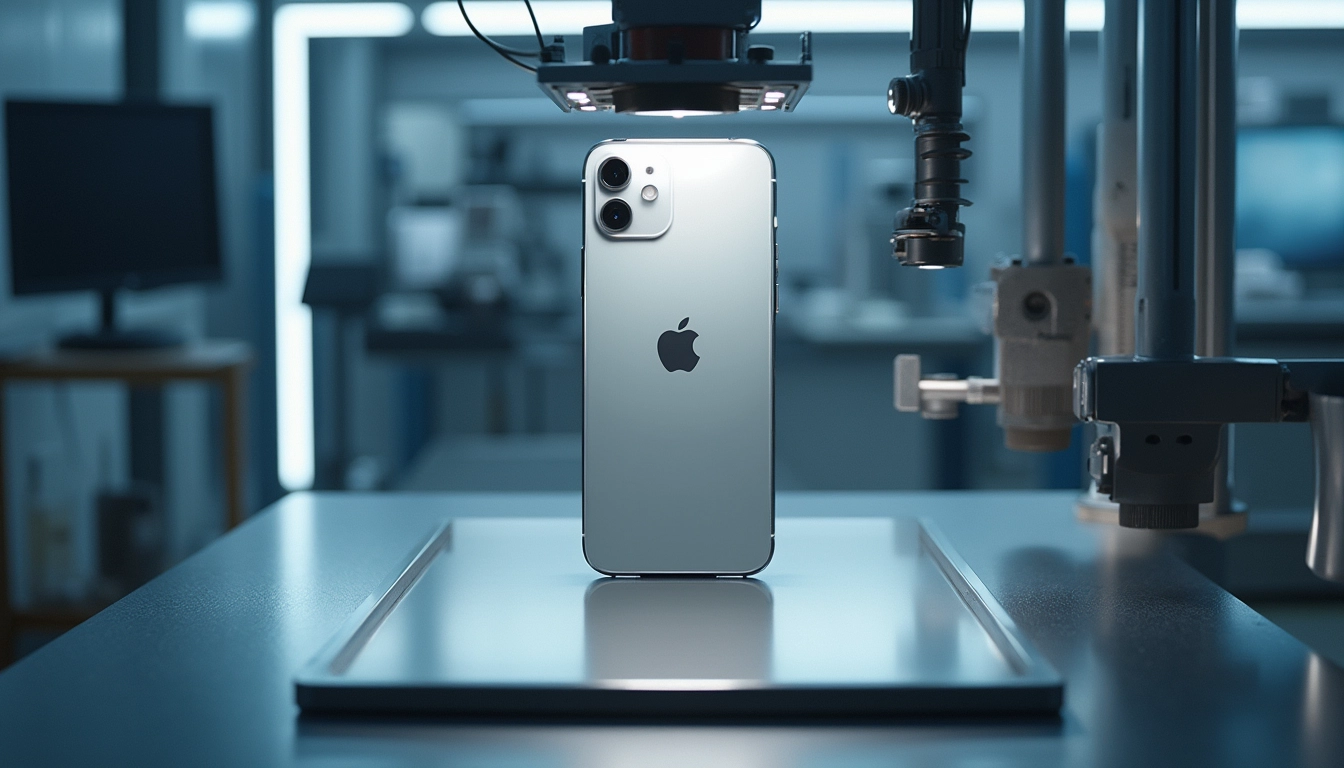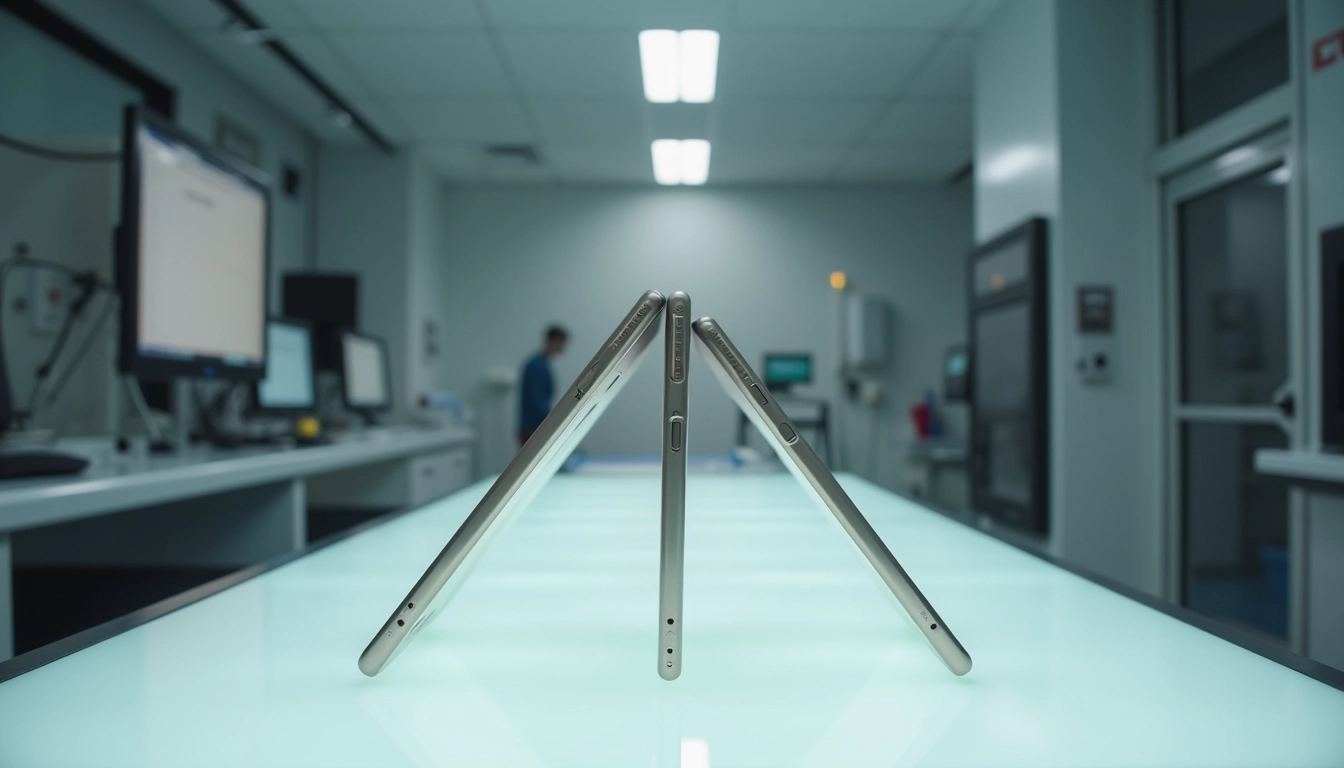
iPhone 17 Air Titanium Frame Passes Durability Test at 5.5mm Thickness
The upcoming iPhone 17 Air has undergone an unexpected bend test ahead of its official launch, demonstrating remarkable structural integrity despite its ultra-slim 5.5mm profile. The test results showcase Apple’s innovative use of a titanium-aluminum alloy frame, setting new standards for durability in thin smartphone design.
Table of Contents
Key Takeaways:
- The iPhone 17 Air maintains structural integrity during rigorous bend testing
- New titanium-aluminum alloy frame provides enhanced durability at just 5.5mm thickness
- Device is nearly 40% thinner than current iPhone 17 Pro models
- Advanced AI-powered structural optimization contributes to device strength
- Battery performance remains efficient despite the slim profile
Revolutionary Ultra-Thin Design
The iPhone 17 Air’s groundbreaking design pushes the boundaries of smartphone engineering with its incredible 5.5mm thickness. This achievement represents a significant reduction from the current iPhone 17 Pro models, which measure 8.725mm. The camera bar area maintains a slightly thicker profile to accommodate advanced optics without compromising photo quality.

Advanced Materials and Engineering
The structural integrity of the iPhone 17 Air stems from Apple’s innovative use of a titanium-aluminum alloy frame. This revolutionary material combination addresses durability concerns that typically plague ultra-thin devices. The advanced engineering in the iPhone 17 series demonstrates Apple’s commitment to pushing technological boundaries while maintaining reliability.
AI-Enhanced Structural Design
Apple has integrated AI-powered analysis to optimize the structural design of the iPhone 17 Air. This sophisticated approach allows for strategic reinforcement in high-stress areas while maintaining the device’s slim profile. The combination of AI optimization and premium materials creates a remarkably durable device despite its thinness.
Battery Life and Performance
Despite its ultra-thin design, the iPhone 17 Air maintains impressive battery life through advanced power management systems. Apple has developed new battery technology that maximizes energy density within the confined space. Users can expect reliable all-day performance despite the reduced physical dimensions.
Market Impact and Future Implications
The successful bend test results position the iPhone 17 Air as a pioneer in ultra-thin smartphone design. This achievement could significantly influence the direction of future mobile device development. The future of Apple’s mobile technology looks promising with such innovations.
Automation and Testing Process
The rigorous testing process for the iPhone 17 Air utilized advanced automation systems for consistent and reliable results. For businesses interested in implementing similar automated testing processes, automation platforms like Latenode offer comprehensive solutions for streamlining quality control procedures.


